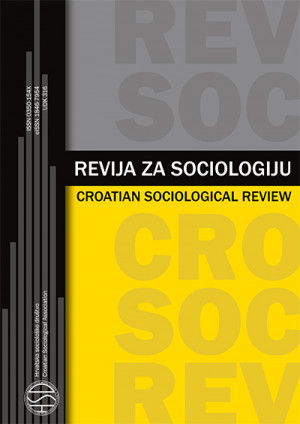Primjena feminističke teorije stajališta u istraživanju ženskih profesionalnih biografija
Application of Feminist Standpoint Theory in Researching Female Professional Biography
Author(s): Valerija BaradaSubject(s): Gender Studies
Published by: Hrvatsko sociološko društvo
Keywords: standpoint theory; methodology; feminism; profession; labour; women
Summary/Abstract: This article considers application of feminist standpoint theory in researching gendered professional and labour positions. This theory is basically defined as the epistemological and theoretical intention of seeing total social reality through the experience of women and the social relations they are involved in, since the overall power relations that intersect in the everyday life of women are more obvious from a marginal position. One of feminist standpoint theory’s special variants is Dorothy E. Smith’s institutional ethnography, whose methodological abundance is tested against a qualitative survey of the professional experience of everyday female labour activities in the design profession. The implementation of this standpoint theory is investigated through topics of research strategy and process, data quality, the researcher – interviewee relationship and data analysis. On the level of research strategy as defined by institutional ethnography, it has been found that the everyday working life of the researched women represents an expression of reality construction through the activities of the actors. Following strategy defined in this way, data quality was ensured by standards of internal and external validity that demand detailed interpretation and sampling of the institutionalized relations dominant in the researched experience. It has been shown that by using the so-called female interviewing paradigm, institutional ethnography enables building of the researcher – interviewee relationship in a non-hierarchical and mutually responsible manner. The process of descriptive and interpretative coding was analyzed, as well as the reasons for abandoning institutional ethnography implementation in defining over-arching codes. Considering the scope of methodological use of feminist standpoint theory in data analysis, it has been shown that the female labour experience in the design profession was approached from their key standpoint, while the institutional regime was interpreted by applying the concepts of the gender regime and professional projects. It is concluded that the complexity of the female professional experience in everyday labour activities can be determined by methodologically elaborated research use of feminist standpoint theory.
Journal: Revija za sociologiju
- Issue Year: 43/2013
- Issue No: 3
- Page Range: 199-222
- Page Count: 24
- Language: Croatian

